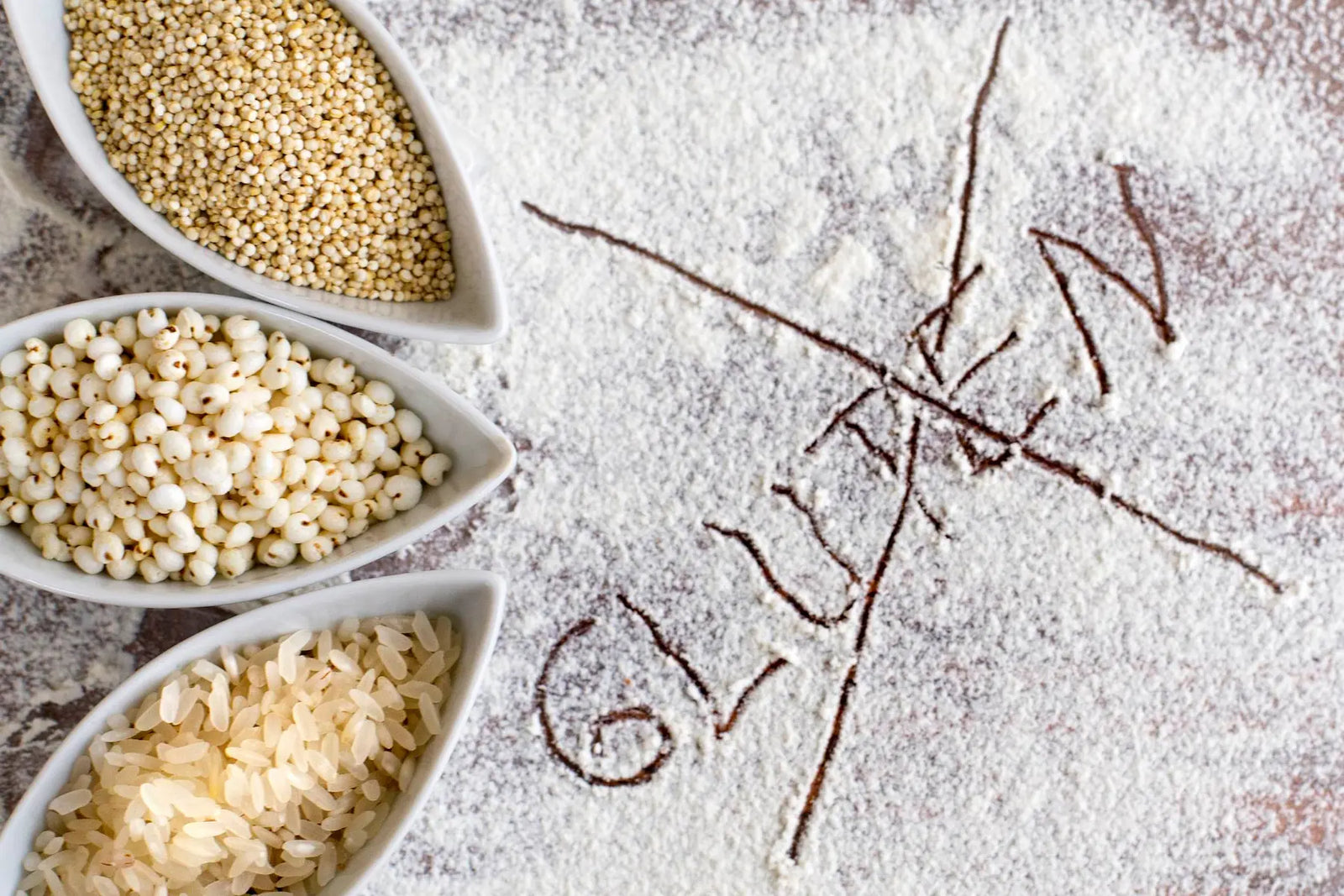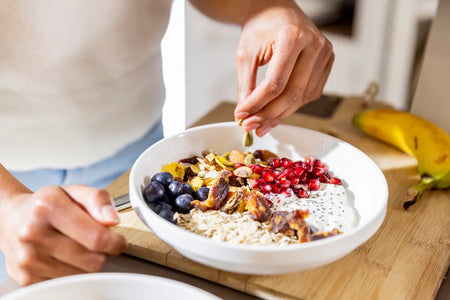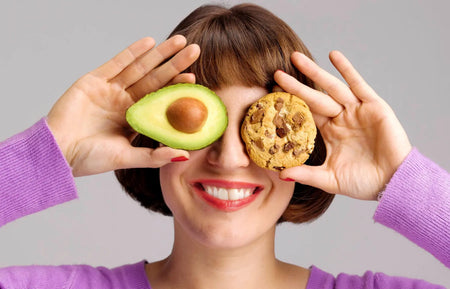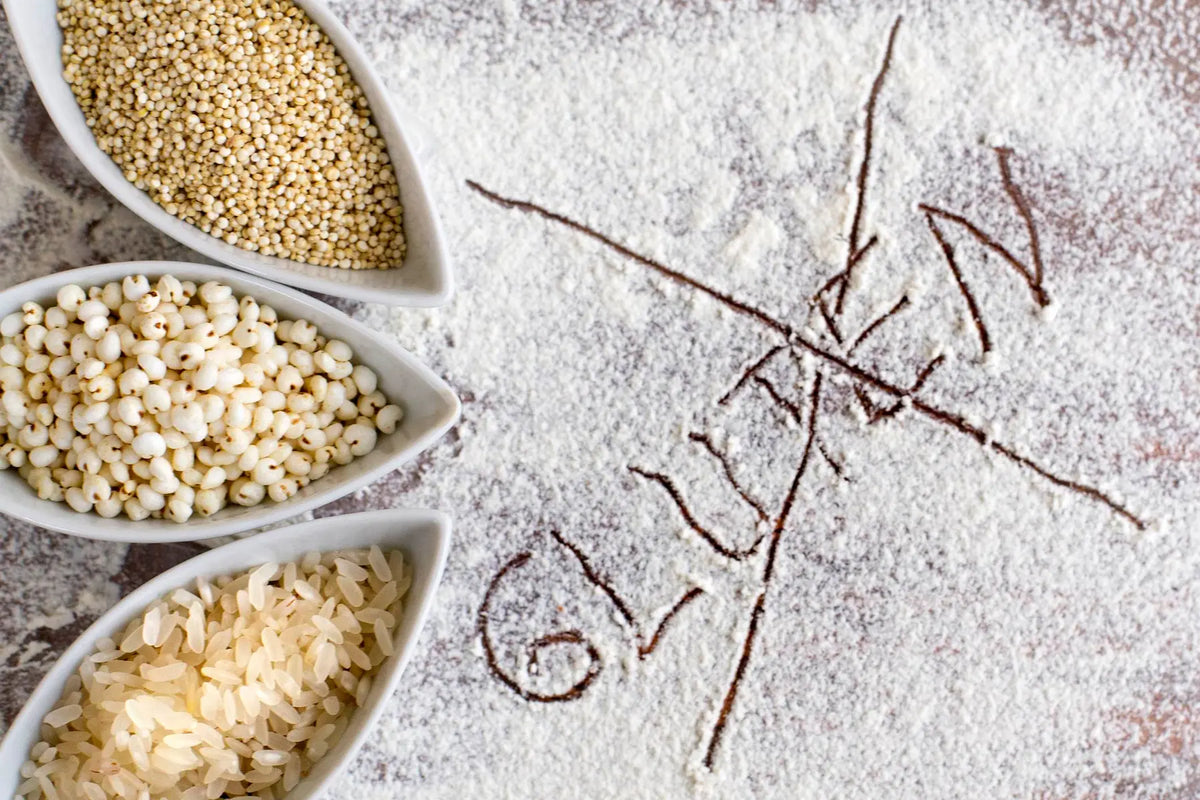Gluten-free
Do you have a gluten intolerance or want to follow a gluten-free diet? Then you've come to the right place. Here at Kölln, we've compiled all the important information on this topic for you – including tips for a balanced diet with oat products.

Enjoy gluten-free: all about oats & a balanced diet
For people with coeliac disease, a strictly gluten-free diet is essential. Gluten is found in wheat, rye, barley, spelt and many foods made from these grains. Conventional oats may also contain traces due to cultivation and processing. To ensure you can enjoy your muesli without worry, we ensure that our gluten-free products are strictly separated from gluten-containing grains from seed to packaging.
Tip: You should also play it safe in your own kitchen! Store gluten-free products separately and use your own utensils. This way, your breakfast will remain truly safe.
Living gluten-free: tips, recipes & everything you need to know!
What exactly is gluten?
Gluten is a protein found in grains such as wheat, rye, oats and barley – but also in spelt, emmer, kamut and green spelt. In everyday life, it is often referred to as "gluten protein" because it makes dough elastic and gives it its typical baking properties.
What happens in coeliac disease?
In coeliac disease, the intestinal mucosa reacts sensitively to gluten – inflammation occurs and nutrients are absorbed less efficiently. The only solution? Eliminate gluten – consistently and for life.
How can you change your diet?
A gluten-free diet doesn't mean sacrificing variety. Instead of wheat, rye or barley, you can simply opt for natural alternatives such as corn, millet, buckwheat, rice, quinoa or amaranth. And the best part? There are specially manufactured gluten-free products – such as our gluten-free oat flakes and gluten-free chocolate muesli. Perfect for safe enjoyment!
Is oat always gluten-free?
Oats and wheat differ not only in taste, but also in their protein content. Wheat contains classic gluten, a special protein that causes problems in coeliac disease. Oats, on the other hand, contain avenin, a protein similar to gluten but with fewer of the components that damage the intestinal lining in coeliac disease. This is why many people with coeliac disease can tolerate oats better than wheat.
But be careful: Not all oats are gluten-free! During cultivation, harvesting, storage and processing, they can be mixed with gluten-containing grains. Therefore, conventional oats cannot be labeled "gluten-free."
Even with us, despite the most modern technology, this cannot be completely avoided: Kölln oat flakes are true wholegrain classics – but they are not gluten-free. They contain more than 20 mg of gluten per kilogram.
Gluten-free? There's a law about that!
The legislature is strict about this – and that's a good thing! EU Regulation No. 828/2014 stipulates that oat-containing products may be labeled "gluten-free" if they meet the following conditions:
- No contact with wheat, rye or barley during cultivation and processing
- Maximum 20 mg gluten per kg product

Look out for the symbol with the crossed-out ear of corn – the official sign for certified gluten-free products. In Germany, the logo is awarded by the German Coeliac Society (DZG) – and only manufacturers who consistently keep their processes gluten-free are allowed to use it. A good feeling for everyone who has to rely on their diet.
What role does oats play in your gluten-free diet?
If you're following a gluten-free diet, our Gluten-Free Delicate and Gluten-Free Regular Rolled Kölln Oat Flakes and our Gluten-Free Oat Muesli Chocolate will add variety to your breakfast bowl. Their delicate, nutty flavor also pairs perfectly with savoury dishes. And best of all, they provide valuable nutrients such as:
- Vegetable protein
- Fibre
- Iron
- Magnesium
- Vitamin B1
Tip: The German Coeliac Society (DZG) recommends slowly introducing gluten-free oats into your diet. Why? So you can check whether your body tolerates them well. Oats are high in fibre, so it's best to increase your intake slowly to avoid digestive stress.
How do we at Kölln ensure that our oats remain truly gluten-free?
For us, gluten-free means maximum control from A to Z. We rely on:
- Pure seeds & controlled cultivation: Our oats grow in specially selected fields – without contact with wheat or rye.
- Separate harvesting, transport & storage: When the oats are ripe, we use only clean machinery and transport vehicles specifically designed for gluten-free oats. At our mill, the gluten-free oats are also stored in separate silos and supervised by trained employees.
- Strict quality and gluten controls: From delivery to packaging – the gluten content is checked at every stage of production. It is only when our Gluten-Free Delicate and Gluten-Free Regular Rolled Kölln Oat Flakes and our Gluten-Free Oat Muesli Chocolate have passed all analytical checks that they are allowed to carry the gluten-free symbol.
Are gluten-free oat flakes the “better” oat flakes?
Better? No. Different? Yes! Our gluten-free Kölln oat flakes are of the same quality as our classic flakes – only with extra safety measures to ensure they remain gluten-free.
Why do we say “gluten-free oats” and not “oats without gluten”?
Quite simply: Oats naturally contain avenin, a cereal protein that is different from wheat gluten. While wheat contains large amounts of the problematic gliadin, the avenin content in oats is minimal.
That's why many people with coeliac disease can tolerate oats well – but not all. This is why oats can be defined as "gluten-free" by law, but not as "naturally gluten-free."
Test for yourself how your body reacts – and enjoy gluten-free oats with a good feeling!









